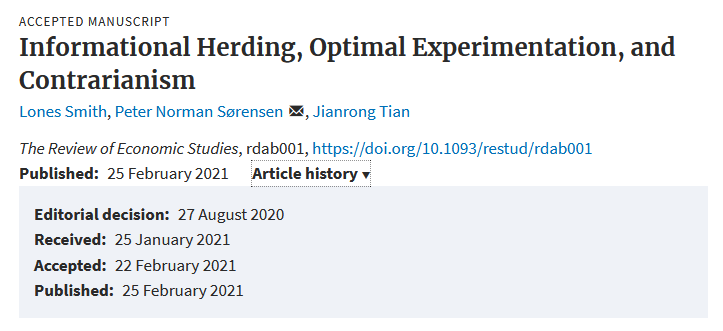I’m now 4 weeks into teaching, here are some updated thoughts:
Attendance:
I’m supposed to have a total of 26 students in a hybrid format: 13 attending in person on Monday and zooming in on Wednesday, the other 13 zooming in on Monday and attending in person Wednesday. So far, it’s been about 5-7 students attending in person, and one day was only 2. That’s a little tough to teach to, especially in a room that typically holds 45-50.
I’m surprised/disappointed by this low attendance. (I think part of it is due to the enormously crappy weather we’ve had.) I chose this format because I believed students wanted in person instruction, but revealed preference makes me think this isn’t true. Part of it is a coordination problem - if I’m the only in-person class on a student’s schedule, then I’m the super annoying one that forces them to change out of pajamas. So I think some better planning by the university would have been good here.
Technology:
The technology setup is pretty good. I wear a lapel microphone, and there’s a video camera that captures me. I have a large movable screen next to the podium where I have the class attendees and chat window, so I can see any questions from remote students. I then log in to the zoom meeting separately on my Surface Book as a co-host, share that screen, and annotate my presentations. I then post the annotated pdfs after class. So I think all of that is going about as well as normal, and maybe that explains why people are willing to be remote.
Quizzes and Exams:
This is the part that I was most worried about, but I think it’s going to be fine. I’ve had two quizzes so far, and I’ve given them through our learning management system. Each student logs in and they take the quiz on their computer. I require that they have their webcams on, but I don’t impose any kind of lockdown browser. The quizzes themselves are decent - I can create questions that randomize inputs, meaning that each student gets unique values in their questions. For example, “How would you value a bond where the face value is $X, the stated rate is Y%, payments are made semiannually, and the discount rate is Z%?”.
What’s also nice is that these questions are graded automatically which takes away my biggest headache. I can imagine that I’ll continue to use this online testing even when classes are back to normal, and not need to use a TA or do it myself.
Safety:
As I mentioned before, the buildings are ghost towns - far fewer classes are being held in person than I expected. The university is testing students on a weekly basis (mandatory), and the positivity rate is around 0.5%. I just got an email requesting that I get tested weekly, but they’re not making it mandatory. It’s an easy saliva test and is free, so I don’t mind doing it at all, and I just scheduled an appointment for Monday.
Overall, things seem to be going as well as I could expect, but given low student attendance so far, I feel like I could have gone 100% remote without any harm. And that would have saved an hour commute each teaching day, $10/day in parking, and allowed me to stay in my pajamas.
